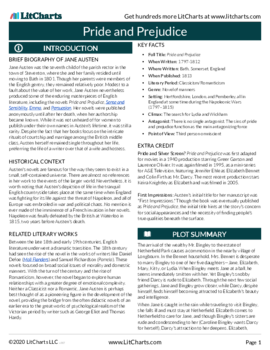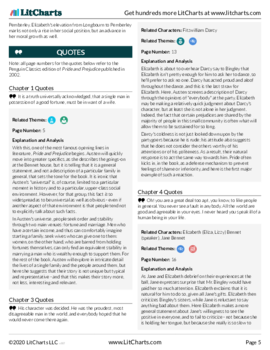- All's Well That Ends Well
- Antony and Cleopatra
- As You Like It
- The Comedy of Errors
- Coriolanus
- Cymbeline
- Hamlet
- Henry IV, Part 1
- Henry IV, Part 2
- Henry V
- Henry VI, Part 1
- Henry VI, Part 2
- Henry VI, Part 3
- Henry VIII
- Julius Caesar
- King John
- King Lear
- Love's Labor's Lost
- A Lover's Complaint
- Macbeth
- Measure for Measure
- The Merchant of Venice
- The Merry Wives of Windsor
- A Midsummer Night's Dream
- Much Ado About Nothing
- Othello
- Pericles
- The Rape of Lucrece
- Richard II
- Richard III
- Romeo and Juliet
- Shakespeare's Sonnets
- The Taming of the Shrew
- The Tempest
- Timon of Athens
- Titus Andronicus
- Troilus and Cressida
- Twelfth Night
- The Two Gentlemen of Verona
- Venus and Adonis
- The Winter's Tale
plus so much more...
-
Lines 1-5
Lines 1-5 begin to establish the poem's voice and setting. The speaker is an artist reflecting on his "craft" or "art," which he pursues in the silence of nighttime. Since there is no additional or alternative explanation, it makes sense to assume that the speaker is Dylan Thomas himself, reflecting on the art of poetry. A poem that reflects on the poet's art is called an ars poetica (Latin for "Art of Poetry"), after a famous poem of that name by the ancient Roman writer Horace.
Thomas wavers slightly between calling poetry a "craft" and an "art," implying that it might be either or both. A "craft" sounds slightly less prestigious than an "art"; though it implies skill, it's a word often associated with homemade or hand-made goods. This initial ambiguity sets up a tension that runs throughout the poem: Thomas takes his poetry seriously, but resists taking it too seriously or coming off as pompous. He wants to keep his poetry humble and honest, not chase literary prestige. In short, he seems to aspire to the humility (but not the amateurishness) of a craftsman, as well as the seriousness (but not the elitism) of an artist.
Thomas also describes his art with a curious adjective: "sullen." This word usually means sulky or resentful, but its meaning here is somewhat mysterious—and likely metaphorical. In light of the lines that follow, it might imply that poets "Exercise[]" (i.e., practice) their art away from the rest of humanity, as if sulking in their rooms. In other words, while "lovers lie abed," poets stay up all "night," writing in solitude. "Sullen" also hints that Thomas's art is rebelling against something. The rest of the stanza will provide some clues as to what that might be.
The poet practices his art while "only the moon rages," somewhere in the sky above. This detail seems highly symbolic: the moon is conventionally associated with passion, romance, poetry, and the like. Its "rag[ing]" might indicate something about its appearance; perhaps the moon is reddish (red being the traditional color of anger) or surrounded by stormy weather. But the verb "rages" might also be meant to personify the moon and to project some of the poet's own feelings onto it. In the "still[ness]" of the "night," that is, the poet wrestles with raging, tumultuous emotions, which seem to find a mirror in the moon overhead.
Meanwhile, the "lovers" of the world rest quietly "abed" (in bed). Here, Thomas turns a potentially sensual image into a sad one. Rather than making love or sharing pillow talk, these couples, according to Thomas, "lie [...] With all their griefs in their arms." In other words, they lie together in deep, brooding sorrow, metaphorically clutching their "griefs" as tightly as they embrace each other. Unhappy as they are, these lovers seem to provide a starting point for the poet's "art."

|
PDF downloads of all 3054 of our lit guides, poetry guides, Shakescleare translations, and literary terms.
PDF downloads of all 1910 LitCharts literature guides, and of every new one we publish.
Learn more
|

|
Explanations for every quote we cover.
Detailed quotes explanations (and citation info) for every important quote on the site.
Learn more
|

|
Instant PDF downloads of 136 literary devices and terms.
Definitions and examples for 136 literary devices and terms. Instant PDF downloads.
Learn more
|

|
Compare and contrast related themes.
Compare and contrast Related Themes across different books.
Learn more
|

|
Teacher Editions for all 1910 titles we cover.
LitCharts Teacher Editions for every title we cover.
Learn more
|

|
PDFs of modern translations of every Shakespeare play and poem.
PDFs of modern translations of every Shakespeare play and poem.
Learn more
|

|
Advanced search across our collection.
Advanced Search. Find themes, quotes, symbols, and characters across our collection.
Learn more
|

|
Line-by-line explanations, plus analysis of poetic devices for lyric poems we cover.
Line-by-line explanations, plus analysis of poetic devices for every lyric poem we cover.
Learn more
|


For every lyric poem we cover.



Literature Guide PDFs
LitCharts PDFs for every book you'll read this year.



Quotes Explanations
For all 42,228 quotes we cover.





Teacher Editions
Time saved for teachers.
For every book we cover.
Common Core-aligned



PDFs of modern translations of every one of Shakespeare's 37 plays, 154 sonnets, and 3 longer poems.


Plus a quick-reference PDF with concise definitions of all 136 terms in one place.





















